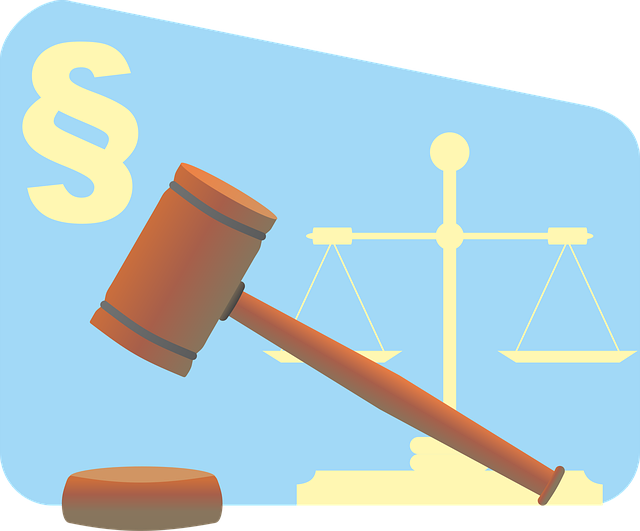RF Regulatory Agencies enhance enforcement power through Sentencing Guidelines Reform and Policy Changes, focusing on compliance inspections, evidence gathering, and penalties. These reforms emphasize fairness, proportionality, and rehabilitation, impacting legal defenses for white-collar RF crimes. Businesses must strengthen internal controls and compliance programs to navigate increased scrutiny, potential financial penalties, and advanced regulatory investigations.
RF Regulatory Agency investigations play a critical role in ensuring compliance with wireless communications laws. This article delves into the evolving landscape of these agencies, focusing on their expanding powers under the lens of recent Sentencing Guidelines Reform. We explore common triggers for agency scrutiny, analyze the impact of policy changes on industry responsibilities, and offer insights into navigating post-reform enforcement actions. By understanding these dynamics, operators can proactively manage risks and adapt to a rapidly shifting regulatory environment.
- Understanding RF Regulatory Agency Powers
- Common Triggers for Agency Investigations
- Sentencing Guidelines Reform: Implications
- Policy Changes and Industry Responsibilities
- Navigating Post-Reform Enforcement Actions
Understanding RF Regulatory Agency Powers

RF Regulatory Agencies possess significant powers to investigate and enforce compliance with radio frequency (RF) standards and regulations. These agencies are tasked with ensuring that technologies emitting RF energy operate within safe limits, protecting public health, and promoting fair competition in the marketplace. Their authority extends to conducting inspections, gathering evidence, and imposing penalties on non-compliant entities. The sentencing guidelines reform and policy changes have further empowered these agencies to address emerging RF-related concerns effectively.
In their investigations, regulatory bodies consider both corporate and individual clients’ roles in potential violations. A successful defense strategy for white-collar and economic crimes often involves navigating complex legal landscapes and presenting compelling arguments. Skilled legal teams can help navigate these processes, aiming for winning challenging defense verdicts that protect the rights of all parties involved while upholding regulatory integrity.
Common Triggers for Agency Investigations

RF Regulatory Agency investigations are often sparked by a variety of factors, reflecting broader trends in regulatory enforcement. Key triggers include recent sentencing guidelines reform, which may adjust penalties for non-compliance and incentivize proactive disclosure, and policy changes that introduce new regulations or clarify existing ones. These shifts can create uncertainty for businesses, prompting them to engage in proactive compliance measures to avoid potential legal scrutiny.
Furthermore, the rise of complex white collar and economic crimes has heightened regulatory agencies’ focus on uncovering fraudulent activities. Agencies are increasingly scrutinizing corporate conduct through meticulous investigations, leveraging advanced analytical tools to identify anomalies and patterns indicative of wrongdoing. A winning challenging defense verdict for a company accused of non-compliance can also serve as a signal for other organizations, underscoring the importance of robust internal controls and compliance programs in preventing regulatory action.
Sentencing Guidelines Reform: Implications

The Sentencing Guidelines Reform brings significant changes to RF Regulatory Agency investigations and subsequent legal processes. This reform aims to create a more balanced approach to punishment, focusing on rehabilitation and proportionality. With policy changes in effect, the onus is on investigators and prosecutors to adapt their strategies, ensuring that penalties are tailored to individual cases while still maintaining consistency across similar offenses.
The implications of this reform offer a promising outlook for those facing RF Regulatory Agency charges. By encouraging a more holistic understanding of circumstances, the new guidelines may lead to more favorable outcomes, including complete dismissal of all charges under certain conditions. This shift in approach could result in winning challenging defense verdicts and achieving extraordinary results for individuals previously facing seemingly insurmountable legal hurdles.
Policy Changes and Industry Responsibilities

The RF Regulatory Agency’s (RFRA) investigations into compliance issues have been significantly influenced by policy changes and sentencing guidelines reform. These reforms have shifted the focus from mere non-compliance to a more comprehensive understanding of industry responsibilities. As a result, companies now face stricter scrutiny, with penalties extending beyond financial fines. The new policies emphasize the importance of proactive measures to ensure adherence to RFRA regulations, such as robust internal controls and employee training.
This shift in approach has also brought about a greater emphasis on avoiding indictment for his clients. General criminal defense strategies are increasingly tailored to address specific regulatory requirements, ensuring that businesses can navigate the evolving landscape without inadvertently crossing legal boundaries. The reform aims to foster a culture of compliance where companies take ownership of their responsibilities, ultimately leading to safer and more efficient operations in the RF spectrum.
Navigating Post-Reform Enforcement Actions

Since the Sentencing Guidelines Reform and Policy Changes, navigating post-reform enforcement actions has become a complex landscape for RF Regulatory Agency investigators. The new guidelines aim to promote fairness and consistency across the country, reflecting a shift from punitive measures towards more restorative approaches. This reform influences how agencies approach investigations, focusing on rehabilitation and compliance rather than solely on punishment.
As a result, investigators must adapt their strategies, considering not only the technical aspects of regulatory violations but also the broader implications for businesses and individuals. The changes impact not just large corporations, but also small businesses and innovators, requiring a nuanced understanding of both legal requirements and the philanthropic and political communities’ evolving expectations. For his clients, this means prioritizing proactive compliance measures, clear communication with regulators, and leveraging technological advancements to ensure adherence to ever-changing regulations.
The evolving landscape of RF regulatory agency investigations, driven by initiatives like Sentencing Guidelines Reform, necessitates a closer look at policy changes and industry responsibilities. Understanding common triggers and navigating post-reform enforcement actions is crucial for businesses to ensure compliance and mitigate risks in today’s digital era. By staying informed about these developments, companies can foster a culture of adherence to RF regulations, ultimately enhancing their operational efficiency and contributing to a more robust regulatory environment.






